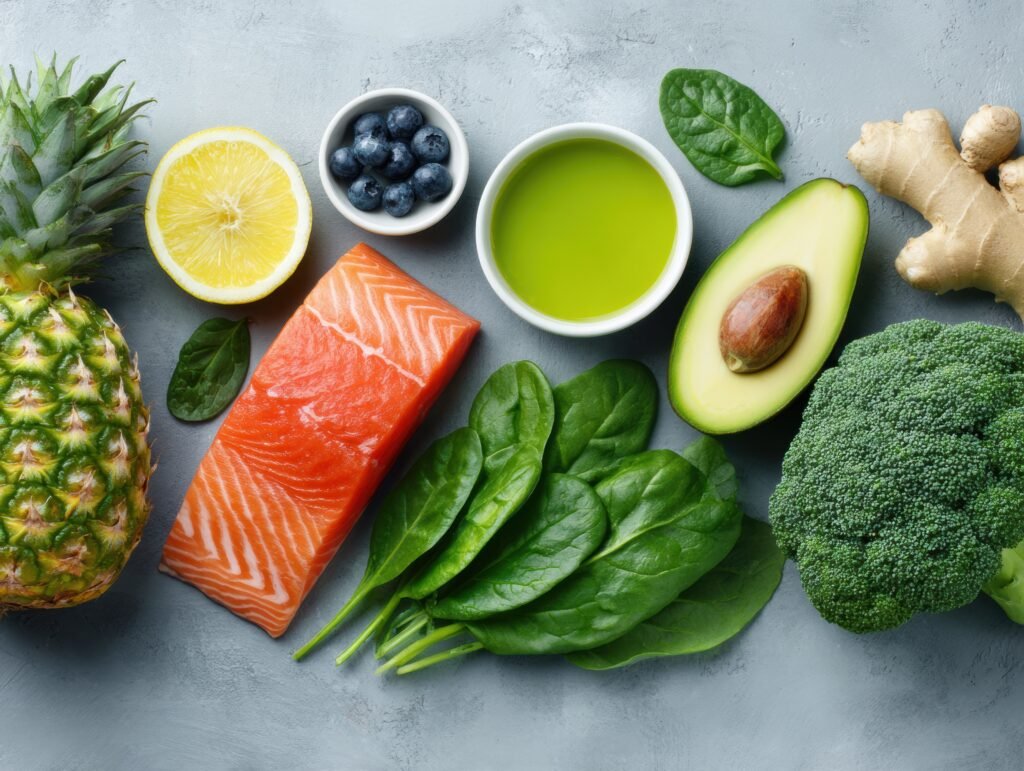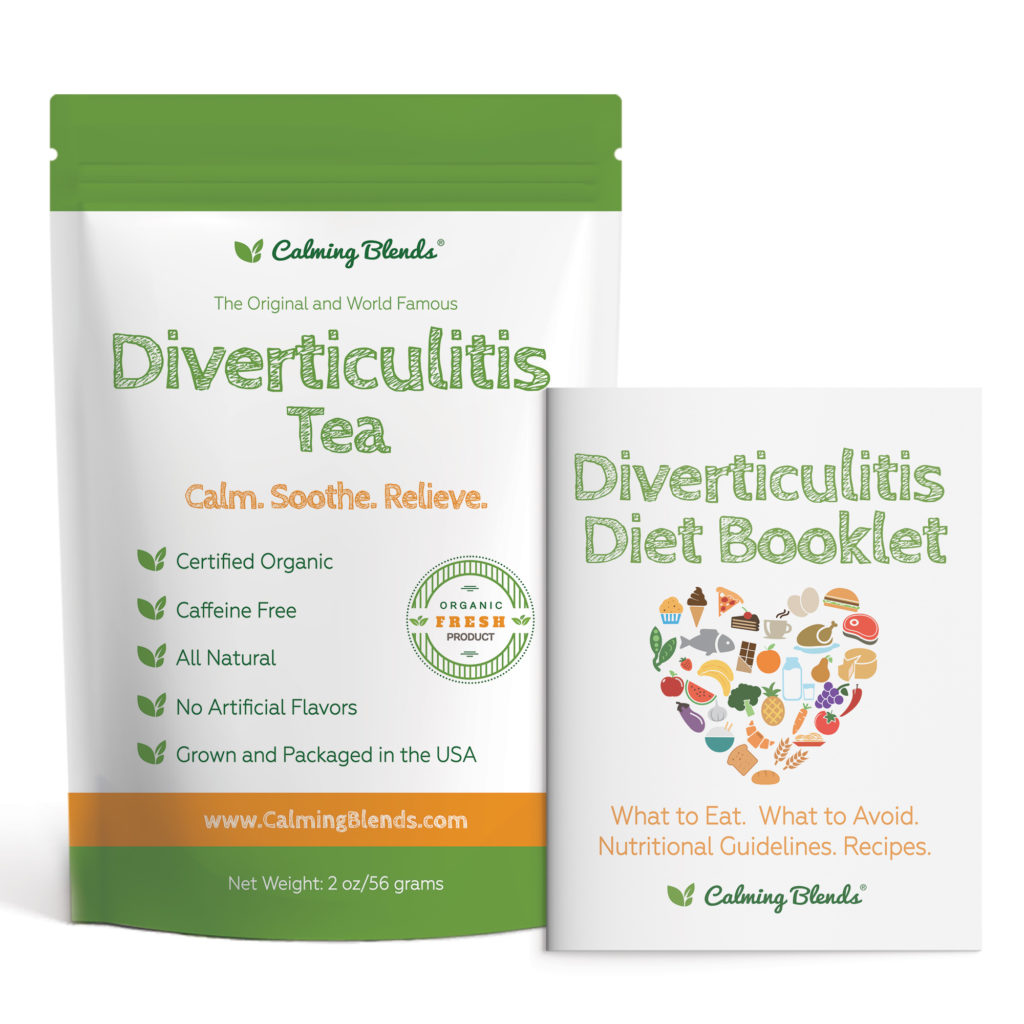Diverticulitis is a painful condition involving the inflammation or infection of diverticula—small pouches that can form in the lining of the colon. Common symptoms include abdominal pain, bloating, fever, nausea, and changes in bowel habits. While medical intervention is essential during flare-ups, long-term dietary strategies can significantly reduce the frequency and severity of episodes. One powerful approach is incorporating anti-inflammatory foods into your diet. These foods work to calm inflammation, support digestion, and nourish the gut microbiome. But how exactly do they help with diverticulitis, and what should your diet look like? Let’s take a deeper look.
What Are Anti-Inflammatory Foods?
Anti-inflammatory foods are rich in antioxidants, fiber, healthy fats, and phytonutrients that reduce inflammation at the cellular level. Examples include leafy greens, berries, fatty fish, olive oil, nuts, seeds, turmeric, and ginger. These foods are known to help prevent chronic diseases, including cardiovascular and gastrointestinal conditions. Research published in the journal Gut (Strate et al., 2018) suggests that a long-term diet high in anti-inflammatory foods is associated with a significantly lower risk of diverticulitis in adults.
How Do Anti-Inflammatory Foods Help with Diverticulitis?
- They reduce intestinal inflammation. Foods like turmeric, salmon, and spinach contain compounds that suppress inflammatory pathways in the colon.
- They support the gut microbiome. Soluble fiber in foods like oats, bananas, and lentils promotes a healthy balance of gut bacteria.
- They aid regular bowel movements. By softening stool and promoting motility, fiber-rich anti-inflammatory foods can prevent constipation and reduce pressure on the colon walls.
- They lower the risk of recurrent flare-ups. An anti-inflammatory dietary pattern may prevent diverticula from becoming inflamed again, improving long-term quality of life.
Note: During acute flare-ups, a clear liquid or low-residue diet is often recommended. Anti-inflammatory foods are best introduced gradually during the recovery or remission phase.
Top Anti-Inflammatory Foods for Diverticulitis
- Blueberries, strawberries, and raspberries
- Spinach, kale, and Swiss chard
- Fatty fish such as salmon and sardines
- Olive oil and avocado
- Turmeric and ginger
- Chia seeds, flaxseeds, and walnuts (only if well-tolerated post-recovery)
- Cooked vegetables and legumes
3-Day Anti-Inflammatory Meal Plan for Diverticulitis (Remission Phase)
This meal plan is designed for individuals in the recovery or maintenance phase—not during an active flare-up. It focuses on gut-friendly, anti-inflammatory ingredients and balanced nutrition.
Day 1
| Meal | Menu |
|---|---|
| Breakfast | Oatmeal with blueberries and ground flaxseed, diverticulitis tea |
| Lunch | Grilled salmon over quinoa with sautéed spinach in olive oil |
| Snack | Pear slices with almond butter |
| Dinner | Lentil soup (pureed if needed), whole grain toast, turmeric tea |
Day 2
| Meal | Menu |
|---|---|
| Breakfast | Banana-spinach smoothie with oat milk, turmeric, and ginger |
| Lunch | Roasted sweet potatoes and chickpeas over arugula with lemon vinaigrette |
| Snack | Greek yogurt with honey and chia seeds |
| Dinner | Brown rice, steamed zucchini, grilled chicken breast with olive oil drizzle |
Day 3
| Meal | Menu |
|---|---|
| Breakfast | Avocado toast on whole grain bread, pumpkin seeds, green tea |
| Lunch | Miso soup with tofu, steamed rice, and cooked carrots |
| Snack | Apple slices and turmeric-roasted almonds |
| Dinner | Baked cod, sautéed kale, mashed cauliflower with garlic |
Additional Support: Herbal Teas
In addition to food, certain herbal teas may soothe the digestive tract. For example, Calming Blends Diverticulitis Tea contains peppermint, chamomile, and marshmallow root—herbs traditionally used to reduce gut irritation and support healing.
Final Thoughts
Incorporating anti-inflammatory foods into your daily diet can be a powerful strategy to manage diverticulitis, support gut health, and reduce flare-ups. While it’s not a replacement for medical care, it’s an essential tool for prevention and long-term wellness. Always consult your doctor or a registered dietitian before making major dietary changes, especially if you’re recovering from a recent diverticulitis flare-up.
References
- Strate LL, Liu YL, Aldoori WH, Giovannucci EL, Chan AT. Dietary patterns and the risk of diverticulitis. Gut. 2018;67(4):721–729.
- Peery AF, Barrett PR, Park D, et al. A high-fiber diet does not protect against asymptomatic diverticulosis. Gastroenterology. 2012;142(2):266–272.e1.
- Harvard Health Publishing. Foods that fight inflammation. Visit site.

